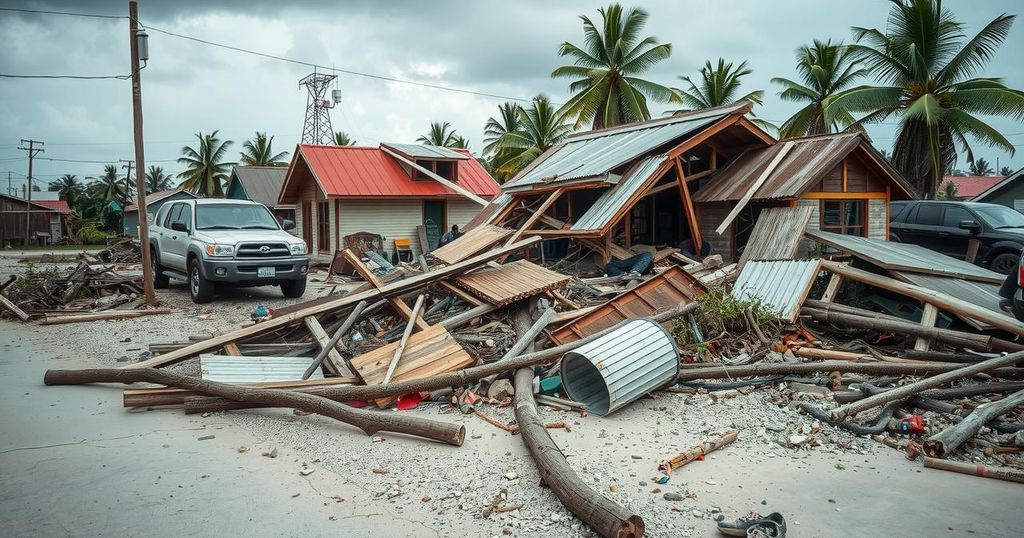Cyclone Chido has devastated northern Mozambique since December 15, leaving 120 dead and 868 injured. Over 680,000 individuals are affected, with significant destruction of homes and infrastructure. The need for effective disaster response and future resilience planning is more critical than ever.
Mozambique has been hit hard by Cyclone Chido, which made landfall on December 15, resulting in a tragic toll of 120 lives lost and 868 individuals injured. Reports from the national disaster relief agency indicate that the cyclone has affected over 680,000 people across northern provinces, including Cabo Delgado, Nampula, and Niassa, where extensive moisture and floods have caused significant destruction. In total, approximately 123,000 families, estimated at 622,610 people, have been impacted, leading to the loss of over 140,000 homes, numerous educational institutions, and essential health facilities.
Cyclone Chido developed in the southwestern Indian Ocean on December 5, subsequently intensifying into a powerful storm that caused devastating conditions in Mayotte before proceeding to Mozambique. Currently, the Mozambican government has activated two emergency shelters, which are hosting 1,349 displaced individuals. The response efforts include urgent calls from authorities and international humanitarian organizations for support to assist affected communities, highlighting the extensive damage inflicted by the cyclone.
This catastrophe underscores the vulnerabilities of social infrastructure in the face of climate change, necessitating improvements in resilient planning for future disasters. The severity of the cyclone’s impact has prompted a renewed focus on developing strategies to mitigate the repercussions of such natural calamities. The ramifications of Cyclone Chido reveal a pressing need for comprehensive disaster preparedness measures and improved infrastructure resilience in Mozambique.
Cyclone Chido is a notable tropical cyclone that struck northern Mozambique and surrounding regions, causing widespread devastation. Tropical cyclones, characterized by their intense winds and heavy rainfall, pose serious risks to coastal areas. Mozambique has a history of vulnerability to such natural disasters, partly due to its geographic location along the Indian Ocean. The nation frequently experiences the effects of climate change, leading to increased severity and frequency of extreme weather events. This background is essential to understand the impacts of Cyclone Chido on the affected communities, as it emphasizes the ongoing challenges Mozambique faces in disaster preparedness and infrastructure resilience.
In conclusion, Cyclone Chido has resulted in substantial loss of life and widespread devastation in northern Mozambique, affecting hundreds of thousands of individuals. The immediate response includes emergency shelters and calls for international assistance. The situation reflects an ongoing challenge for Mozambique, highlighting the need for improved resilience against climate-related disasters and an urgent response to assist the afflicted populace.
Original Source: english.mathrubhumi.com







